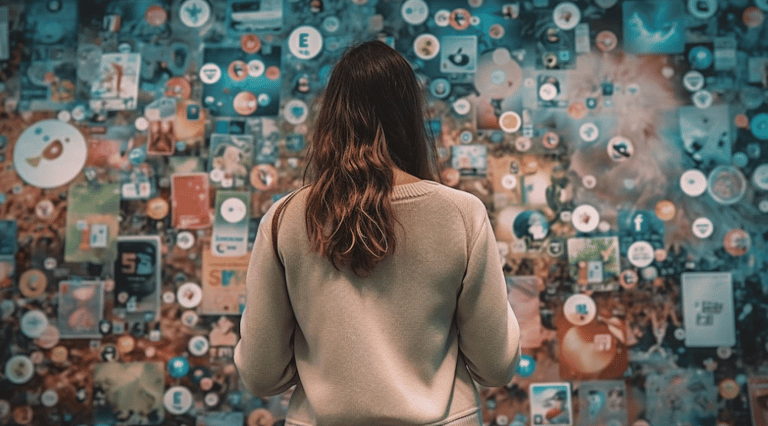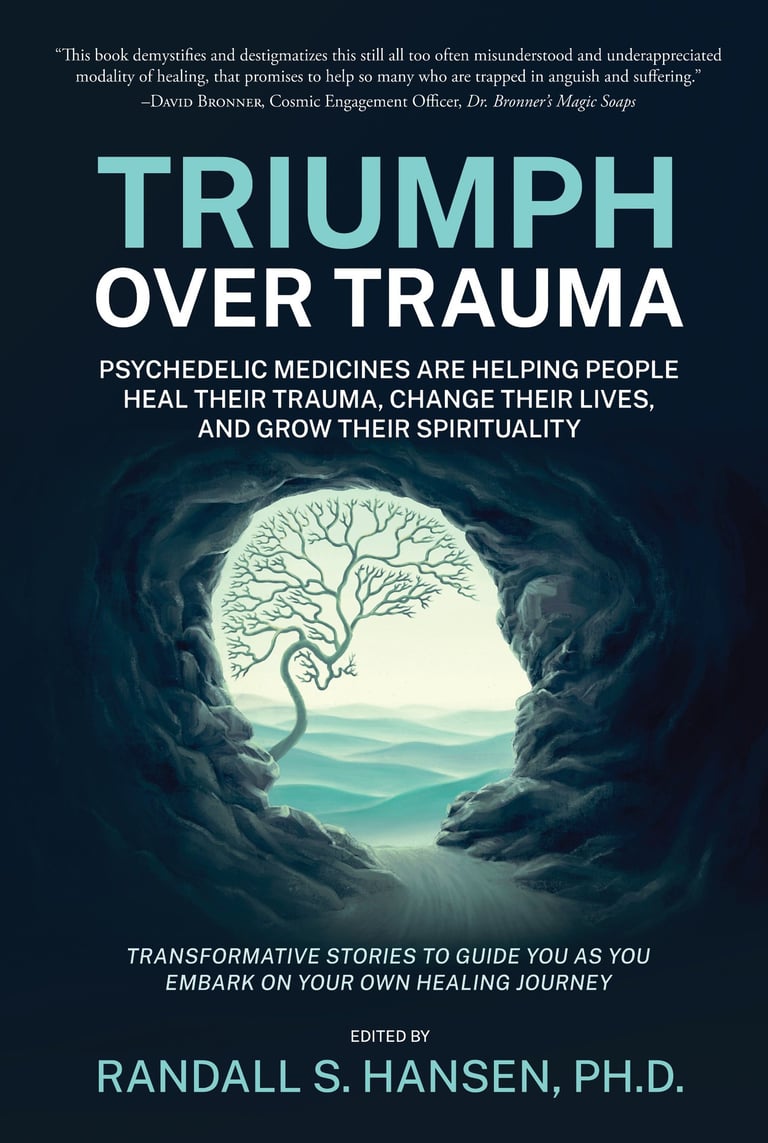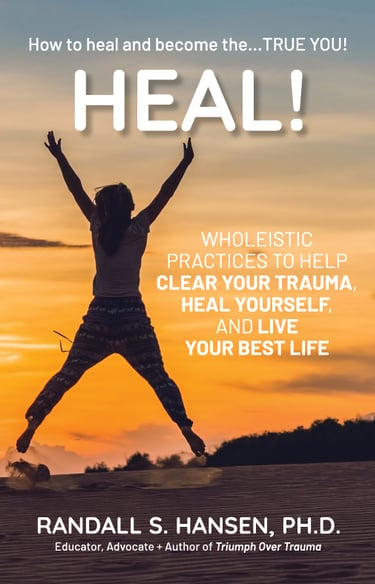It's Time To Address It: Screen-Life Balance
How's your health?
If you're facing some struggles, one issue you may be ignoring -- since devices are now part of our everyday lives -- is the effect of screen time on your health... and not just your eye health, but your overall health.
Studies show many younger adults report spending 30+ hours just on their phones -- add tablet and computer screens -- and those numbers are pretty staggering.
Some experts suggest it's a combination of the time spent and the content consumed that impact health.
So, how much time do you spend in front of your various devices -- and what is the type of content you're viewing?
Since we will never give up our devices (which many of us need to make a living), let's focus on why we all need to develop some boundaries -- create a screen-life balance.
Why Screen-Life Balance is Needed
We face so many challenges and adverse effects with both the content and time spent on our screens/devices.
Content. How healthy is the content of your feed? Does it contain angry outbursts, political ranting, conspiracy theorists, artificial social media influencers, porn of any kind? I will admit that my feed was pretty ugly before I got onto my healing journey. Today, it depends on the platform, but the vast majority is about empowering people, spreading the word of healing, showcasing the abundance of nature.
Time Spent. Most of us likely grossly underestimate the time we spend on our devices, because most of us have multiple devices and switch through them all day... and sometimes, all night. You can download an app to track your time, but if you do, make sure you download it for all your devices.
Research has found that excessive screen time, especially when it involves controversial content, can contribute to:
Lower self-esteem
Comparison Syndrome
Increased anxiety
Higher rates of depression
Poor sleep
Unbalanced emotions
Body issues and eating disorders
Obesity
Eye strain
Tackling Screen-Life Balance
The first step to dealing with this issue is admitting you may be spending way too much time on your devices, perhaps even admitting an addiction to the content you view on those devices.
Experts recommend asking yourself these questions if you are not sure if your screen time is out of balance:
Are you sleeping well?
Are you eating meals regularly?
Do you regularly engage/interact with the people around you?
Are you leaving your home to run errands?
Are you leaving your home for social/professional events?
Are you spending time in nature?
Is your work going well?
Do you feel calm at the end of the day?
Do your eyes feel fine/normal?
Is your weight remaining relatively stable?
Are you generally physically active?
If you can honestly answer yes to all these questions, then no matter the hours you're logging on your devices, you must be balancing the time well.
If you answered "no" to one or more of these questions, it's time to examine your priorities. What do you want from life? How happy are you? Are you on a healing journey?
Too often we use our devices to hide, to have a sort of secret life... but real life exists OUTSIDE our devices. And yes, real life can sometimes be scary, dangerous, unfulfilling -- but it can also be glorious, beautiful, magical, deeply fulfilling.
One interesting statistic (see more in the link at the end of the article): Limiting social media screen time to 30 minutes per day improves well-being and reduces depression. So much of social media -- and I love what my friend Philip calls "Fakebook" -- is designed to make you linger longer, pull you in, keep you scrolling. Worse, the more time spent can trigger Comparison Syndrome, which leads to feelings of inadequacy, doubt, anger, bitterness, shame.
Screen-Life Balance Tips
While you can create your own screen-time guidelines, here are some suggestions from experts:
1. Take Regular Screen Breaks. Especially when I am working on my laptop, I force myself to take hourly screen breaks; I get up, stretch my legs and back, and look out the window (both for the distance viewing and for a moment of gratitude).
2. Leave Devices Behind/Undercover. When going to social events, walking out in nature, visiting people, etc. -- leave your device behind... or at least practice NOT using it while doing these things.
3. Turn Off Most Push Notifications. Have you experienced this? While at some social gathering a sound chimes and half the people reach for their phones. Ugh. Yes, in cases of deadlines or important life events, you may need to keep some notifications on, but you could also change those to badges and not sounds. Otherwise, why are you allowing all these notifications to drive your actions?
4. Stop Having Meals/Snacks With Your Devices. When we eat and view our screens, we often don't even remember what we ate and because of that, we often overeat. Practice what I call mindful eating -- thinking about each bite and truly experiencing it. And if you are eating with others, then enjoy their company.
5. Device/Screen Shutdown Before Bed. All evidence supports NO screens of any kind in your bedrooms. Bedrooms are for sleep and other social activities -- not for lying in the dark on a device. Screens are destroyers of good sleep patterns... and good sleep is vital to mental and physical health.
6. Create Better Activities/Habits Than Screens. Instead of spending 30 minutes viewing/scrolling hundreds of self-promotional posts (and if we're being honest, almost all posts are self-promotional in one way or another), have 30 minutes of play with your spouse, child, pet... or a 30-minute brisk walk... or 30 minutes down at the neighborhood park... or 30 minutes checking in on a friend or neighbor... or 30 minutes tending your garden or partaking in some other hobby/interest.
Final Thoughts About Screen-Life Balance
Even if you think you are managing things perfectly, I encourage you to try out a few of the suggestions in this article and see if your life gets better, healthier.
There are also concerns about the effects of HEV light -- screen "blue light" -- but research is inconclusive. If you are concerned about your eyes, it's best to check with your eye doctor. (Learn more here.)
Reducing screen time and taking regular breaks from your devices will result in a better overall health and well-being. Live your life in balance.
My favorite eye doctor gave me this rule: "During heavy close work, especially with a screen, every 20 minutes, stand up, look at something at least 20 feet away... for 20 seconds. This relaxes the muscles of the eyes -- and is also good for the rest of the body to stand and stretch at the same time."
Fun aside: After finishing this article on my laptop, my partner and I played a fun and vigorous 15 minutes of ping pong before getting back to work.
Screen-Life Balance Resources


Dr. Randall Hansen is an advocate, educator, mentor, ethicist, and thought-leader... helping the world heal from past trauma. He is founder and CEO of EmpoweringSites.com, a network of empowering and transformative Websites, including EmpoweringAdvice.com.
He is the author of the groundbreaking Triumph Over Trauma: Psychedelic Medicines are Helping People Heal Their Trauma, Change Their Lives, and Grow Their Spirituality and the well-received HEAL! Wholeistic Practices to Help Clear Your Trauma, Heal Yourself, and Live Your Best Life.
Dr. Hansen's focus and advocacy center around true healing ... healing that results in being able to live an authentic life filled with peace, joy, love. Learn more by visiting his personal Website, RandallSHansen.com. You can also check out Dr. Randall Hansen on LinkedIn.






